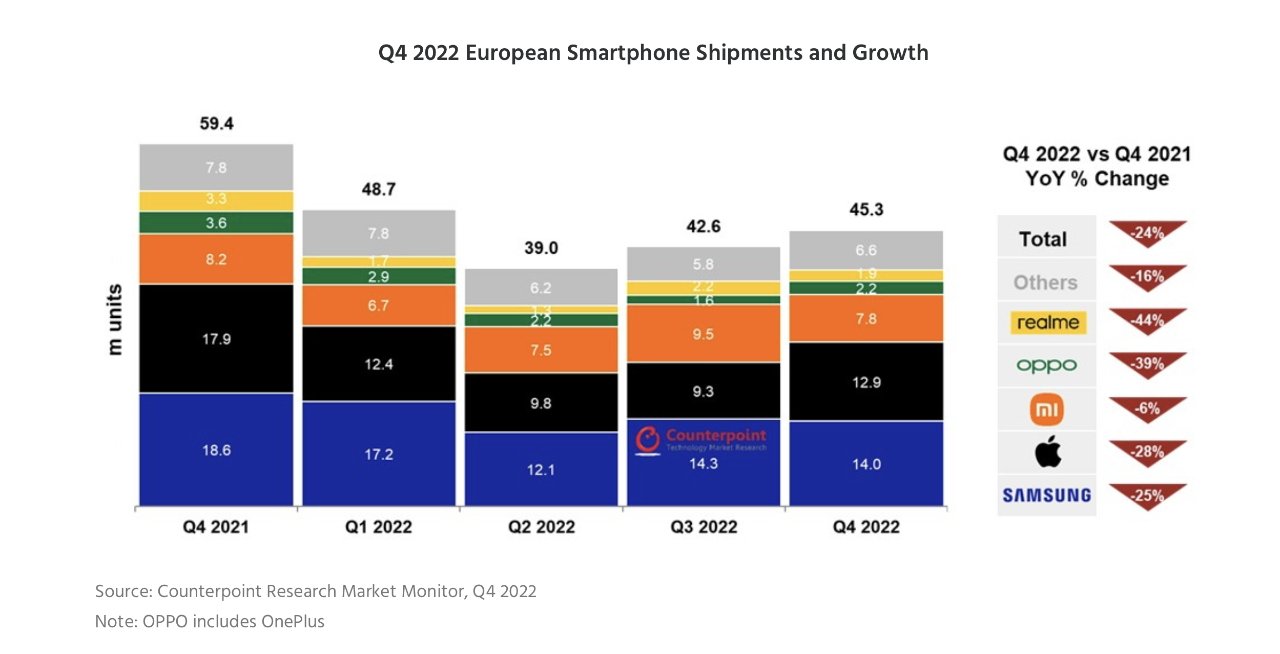iPhone 14 (left) and the iPhone 14 Pro (right)

AppleInsider may earn an affiliate commission on purchases made through links on our site.
Researchers claim that as smartphone shipments drastically declined in Europe in 2022, the iPhone 14 was Apple's weakest seller since 2012's iPhone 5.
Counterpoint Research previously described 2021 as a rollercoaster year in smartphone sales, but at least Apple hit its highest European market share then. But now in its latest research, the company reports EU smartphone shipments in 2022 were bad for all manufacturers, including Apple.
The research claims that overall, the EU smartphone market declined by 17% in 2022 compared to 2021. About 176 million smartphones were shipped in the year, which is the lowest total since 2012.
"Yes, the traditional Christmas boost meant quarterly shipments increased compared to Q3, but consumer demand remained muted," said Jan Stryjak, Counterpoint Research associate director. "Apple's usual strong end to the year was weaker than expected, allowing Samsung to maintain its leadership of the European market."
Nonetheless, says Counterpoint, despite Apple's iPhone 14 seeing the weakest EU launch for a decade, it still helped smartphone shipments overall grow by 6% in Q4 2022, compared to Q32022. It's not clear if the researchers mean the iPhone 14 itself, or the entire annual lineup including the iPhone 14 Pro family, and the iPhone 14 Plus.

Stryjak ascribes the overall falling shipment numbers to how "there was no let up for European consumers in Q4 as the cost of living remained at record levels."
Initially, things are not likely to improve as Stryjak says that "the challenging macro climate and ongoing geopolitical tensions will continue into 2023 and potentially get worse initially as the cost-of-living crisis deepens through Winter."
Counterpoint expects the first half of 2023 to see "weakened consumer demand and high inventory levels," especially as "some countries are likely to fall into recession."
"However, inflation has stabilised and wholesale energy prices have dropped, leading to hopes of interest rate and energy bill cuts later in the year," says Stryjak. "This should boost consumer confidence and spur demand, leading to a better second half of the year."